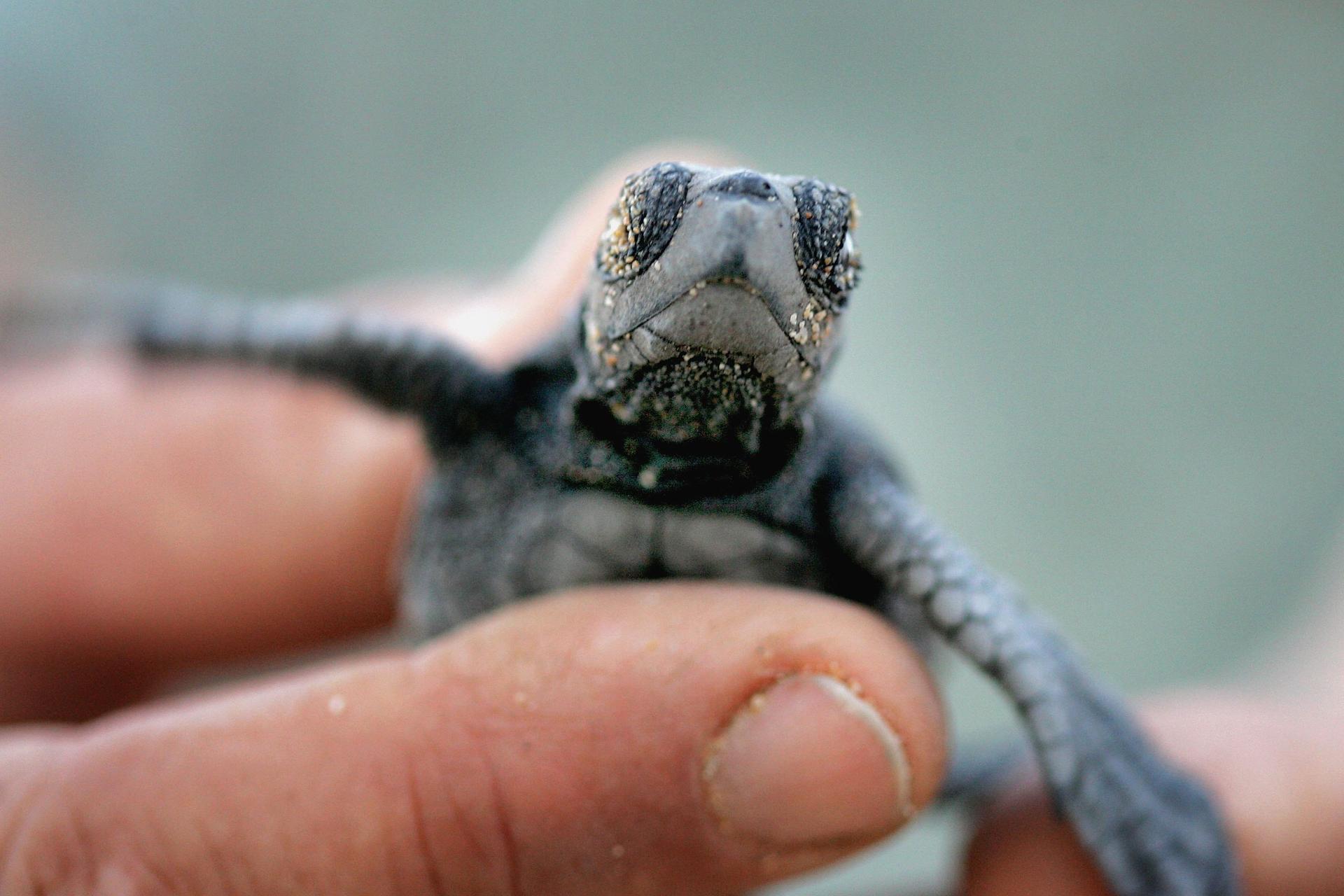Climate change threatens baby sea turtles, study says
A new study found that climate change is a growing threat to the survival of baby sea turtles.
Leatherback baby sea turtles may be under threat from climate change, says a new study.
The turtles, already under threat from human poaching, now face the risk of being baked inside their nests as temperatures and humidity rise.
“They’re facing not just one problem, but a convergence of many negative effects of both people and climate change,” James Spotila, the Betz Chair professor of environmental science at Drexel University told The New York Times.
The research looked at six nesting seasons between 2004 and 2010, in which leatherback mothers plant their eggs in holes in the sand.
The babies hatch about two months later.
Researchers waited for the eggs to hatch in about 814 nests, reported Summit County Citizens Voice, and then counted the dead babies and spoiled eggs.
Spotila and his team found that during seasons governed by El Nino, which are hot and dry, the turtles had a higher mortality rate.
Researchers also found that hot temperatures increased the number of female hatchlings, reported the New York Times.
Using models of climate change in the region, which shows increasing temperatures and more frequent El Nino conditions, scientists say that the turtles could be under serious threat.
“I’d say this is yet another example in this mounting pile of how global warming and climate change are threatening animals and plants all over the place,” Spotila said to the New York Times.
Leatherback turtles are found all over the tropics and subtropical regions but have faced massive declines in recent years due to contact with humans.
The turtles are either poached for their eggs, caught in fishing nets or pushed off sandy beaches by sunbathers.
Costa Rica remains one of the last major breeding grounds for the turtles.
The research can be found in the journal PLoS ONE.
The story you just read is accessible and free to all because thousands of listeners and readers contribute to our nonprofit newsroom. We go deep to bring you the human-centered international reporting that you know you can trust. To do this work and to do it well, we rely on the support of our listeners. If you appreciated our coverage this year, if there was a story that made you pause or a song that moved you, would you consider making a gift to sustain our work through 2024 and beyond?
